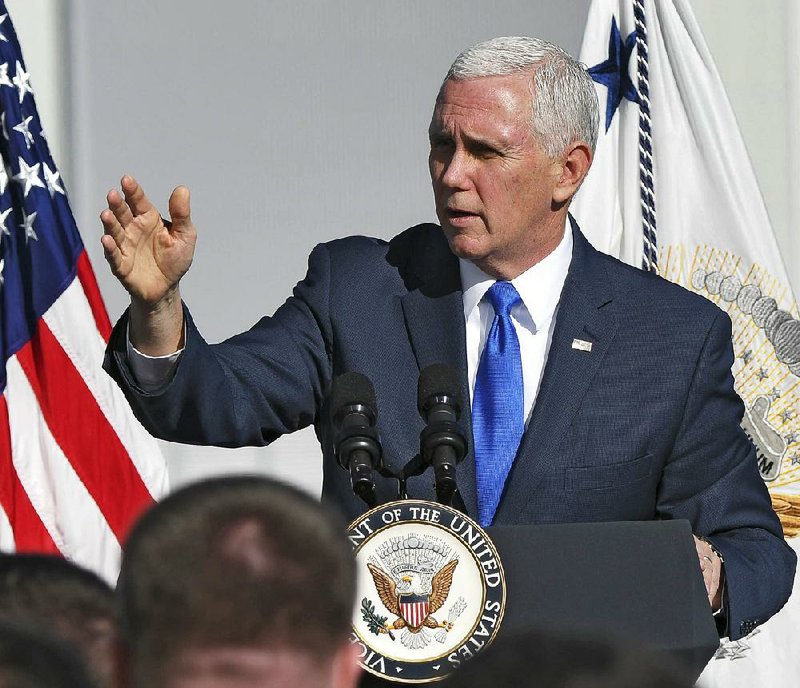WASHINGTON -- President Donald Trump got a start on the Pentagon's new Space Command on Tuesday, an effort to better organize and advance the military's t operations in space that is expected to cost as much as $800 million over the next five years.
Trump signed a one-page memorandum Tuesday authorizing the Defense Department to create the new command. Speaking at the Kennedy Space Center in Florida, Vice President Mike Pence said, "A new era of American national security in space begins today."
The goal is to set up a command to oversee and organize space operations, accelerate technical advances and find more effective ways to defend U.S. assets in space, including the vast constellations of satellites that American forces rely on for navigation, communications and surveillance. The move comes as concerns grow that China and Russia are working on ways to disrupt, disable or even destroy U.S. satellites.
The new order is separate from the president's much touted goal of creating a "Space Force" as an independent armed service branch, but is considered a first step in that direction. The memo provides little detail on what will be a long and complicated process as the Defense Department begins to pull together various space units from across the military services into a more coordinated, independent organization.
According to one U.S. official, the command would pull about 600 staff members from existing military space offices, and then add at least another 1,000 over the coming years. The roughly $800 million would mainly cover the additional staff members. The costs for the existing staff would just transfer to the new command, but that total was not immediately available.
The official spoke on condition of anonymity to discuss internal deliberations not yet announced.
Army Lt. Col. Joe Buccino, spokesman for Deputy Defense Secretary Patrick Shanahan, said that establishing Space Command is "a critical step in accelerating our space capabilities and posture to defend our vital national interests and deter our adversaries. This combatant command will lead space operations and develop space war-fighting doctrine, tactics, and techniques."
He added that the Pentagon will continue to develop a legislative proposal to meet the president's vision for a space force.
The first steps next year will be to nominate top leaders for Space Command, including a four-star general and a deputy. The command would likely at least begin to take form in Colorado, where the current Joint Functional Component Command for Space is already located. But there has been no final decision on a location for the new command.
Trump's order accelerates what has been a decades-long effort to reorganize and improve the military's technological advances in space, which at times has gotten less attention as the Air Force has focused on warplanes and other combat priorities.
The military's role in space has been under scrutiny because the United States is increasingly reliant on orbiting satellites that are difficult to protect. Satellites provide communications, navigation, intelligence and other services vital to the military and the national economy.
Over the past year, the issue gained urgency as competition grows and threats arise from adversary nations.
U.S. intelligence agencies reported earlier this year that Russia and China were pursuing "nondestructive and destructive" anti-satellite weapons for use during a future war. And there are growing worries about cyberattacks that could target satellite technology, potentially leaving troops in combat without electronic communications or navigation abilities.
Information for this article was contributed by Marcia Dunn of The Associated Press.
A Section on 12/19/2018
